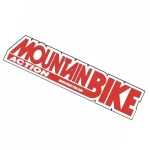Opinion: Trail Etiquette Is Fading but Only if We Let It

Opinion: Trail Etiquette Is Fading but Only if We Let It
By Ron Koch
As I rounded the corner, I saw a young mother nearly in tears cradling her infant and a man whom I assumed to be the father consoling her. Less than a minute before I was passed by a group of downhill riders who not only blew past me as I was climbing, but did so in a rather reckless manner. Before I even asked if they were okay, I knew in my gut exactly what had happened. “We’re okay, but that bike almost hit us,” he said. Not knowing what else to say, I apologized and told them that all riders are not jerks like that, and pedaled away in disappointment.
This incident took place years ago, not long after the 2009 Station Fire in the San Gabriel Mountains. It closed a vast number of trails, pushing riders into other areas. Easily shuttled trails like the one near my home suddenly became crowded, and user conflict seemed to escalate as a result. What was once a buffed-out, relatively smooth, multi-use, non-motorized singletrack had blown-out corners with braking bumps leading into nearly every one of them seemingly overnight. I used to ride this trail just about every weekend during the summer but started avoiding it. Most riders were courteous, but a handful were not.
ANGER MANAGEMENT
Over the years, it seems as though more value has been put on the descending experience than climbing and, along with that, a steady erosion of trail etiquette. After witnessing the incident with the family, I will admit to riding with a chip on my shoulder when it came to riders yielding to not just other trail users but also uphill riders.
Foolishly, I started going back on the weekends and riding up the eight-mile-or-so long trail mid-morning. While climbing, instead of pulling over for riders who were clearly not going to yield to me, I held my line and kept climbing. Needless to say, conflict soon arose. I quickly realized that those who didn’t yield didn’t care, and nothing I said mattered. They didn’t want to upset their flow for a couple of seconds.
It finally escalated when a rider going way too fast lost their front end off the edge of the trail right next to me, hitting the ground rather hard. I genuinely felt bad for a second until the rider jumped up in my face upset that I got in their way. Unpleasant words were exchanged for a few seconds until the next rider in tow defused the situation.
TWO WRONGS
Although the other rider was technically in the wrong, so was I. Instead of avoiding conflict, I invited it, and my actions were not going to produce a productive change. After that day, I went back to riding the trail on the weekdays and chose to direct that energy towards those new to or on the periphery of my riding circles. You might think I am a cross-country geek who doesn’t care about descending, but that couldn’t be farther from the truth. I’m just as much a gravity goon as I am a cross-country geek. I love it all and have spent more than my fair share of time in shuttle vehicles and chair lifts.
I was recently reminded of all of the right-of-way topics on a recent trip to Sedona where I encountered and yielded to a lot of ebikes riding uphill. After many of these encounters, I felt somewhat conflicted and started asking myself if we should yield to them. The conclusion I quickly came to is, yes. As downhill riders, we are carrying far more speed and can cause the most damage. Besides that, it’s simply polite, and you can’t easily identify an ebike from far away at speed. Just because they’re on an ebike doesn’t mean they aren’t struggling to get up the climb, either.
I realize that I am preaching to the choir here. MBA’s readers are some of the most educated, polite, skilled and good-looking riders out there. I bring this subject up for those who are new to the sport and MBA. Also, as a reminder for us to police our own riding groups and friends who might not know or care. Not every fellow trail user will be a young mother carrying an infant, but we should treat each other with the same respect and care as if they were. Our trails and riding experience will be better for it if we do.




